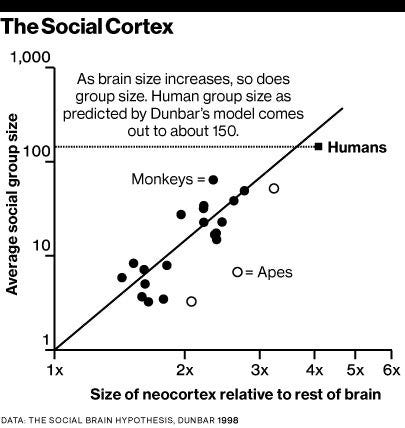
Sapient Paradox
One puzzling aspect, which I call the Sapient Paradox. . . we can see in the archeological record. . . the appearance of our own species, Homo Sapiens, about 100 or 150,000 thousand years ago in Africa, and we can follow the out-of-Africa migrations of our species, Homo sapiens, 60-70,000 years ago. . . Apart from the episode of cave art, which was very much limited to Europe and a bit further on to Asia, not a great deal happened until about 10,000 years ago.
Highlights
-
the Sapient Paradox implies a Great Trap, a trap in which human society lived for, at minimum, 50,000 years, and, at maximum, something like 200,000 years or even more
-
A “gossip trap” is when your whole world doesn’t exceed Dunbar’s number and to organize your society you are forced to discuss mostly people. It is Mean Girls (and mean boys), but forever. And yes, gossip can act as a leveling mechanism and social power has a bunch of positives—it’s the stuff of life, really. But it’s a terrible way to organize society. So perhaps we leveled ourselves into the ground for 90,000 years.
AI generated version
The Sapient Paradox and the Great Trap
The emergence of Homo sapiens 100 or 150,000 years ago is a significant moment in the archeological record. But the period from the out-of-Africa migrations to about 10,000 years ago, except for the limited episode of cave art, appears to be unremarkable. This puzzling aspect is referred to as the Sapient Paradox, which implies a Great Trap, a period in which human society remained stagnant for thousands of years.One possible explanation for the Great Trap is a "gossip trap," in which society lived within Dunbar's number, a cognitive limit to the number of people with whom one can maintain stable social relationships. This means that societies may have been forced to discuss mostly people, resulting in a leveling mechanism and a lack of innovation. While gossip can act as a social power and has its benefits, it may not be the best way to organize society.The Sapient Paradox highlights the limits of human evolution and the importance of innovation in advancing societies. It also calls into question the effectiveness of social structures and the role of gossip in society. Ultimately, understanding the Great Trap can help us avoid falling into similar traps in the future and promote progress and innovation in society.